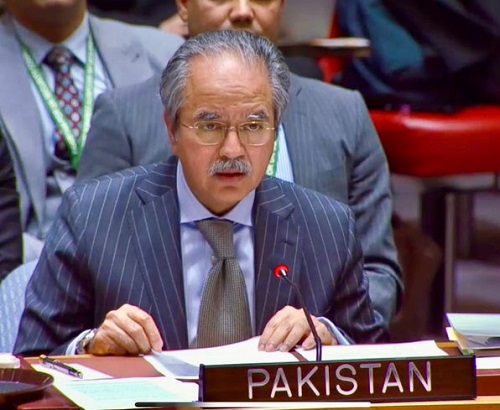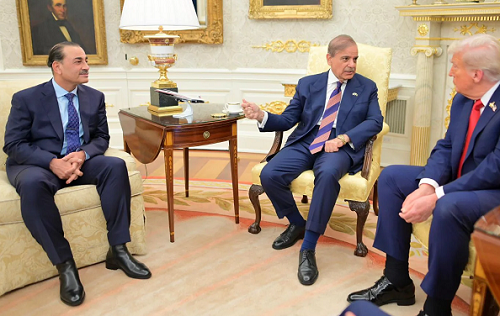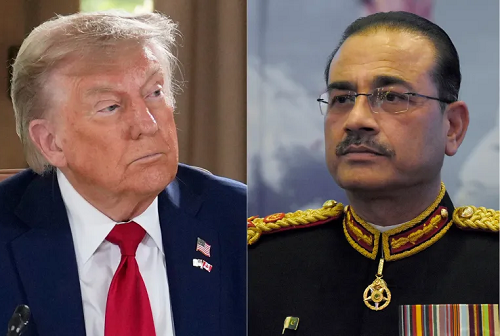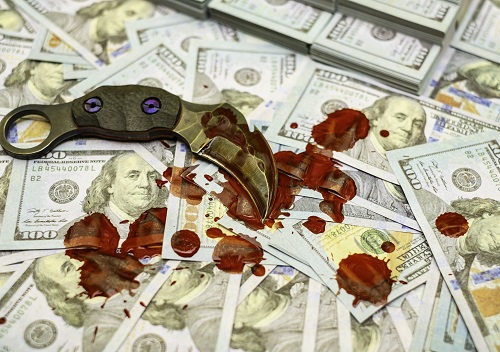By Yvonne Ridley
AMERICA under Donald Trump has come under intensive scrutiny when it comes to granting visas in the Arab and Muslim world, but it seems in Britain there's growing suspicion of an equally sinister ban being carried out.
The UK stands accused of operating a secret travel ban against Arabs after it emerged that a large number of internationally renowned academics, religious leaders, musicians, artists and performers from the Middle East have been refused visas to enter the UK.
They were all booked to appear or perform at the world famous Edinburgh Festival in Scotland but were rejected on the grounds that they would not return to their home countries after the festival draws to a close on August 28. The move by the Home Office in London is said to have angered many in the Scottish government, which has long wanted to determine its own immigration, asylum and border controls instead of relying on the British government.
Included in the Arab ban list is the Reverend Rola Sleiman, the first Christian woman to be ordained in the Middle East. Like the others whose visa applications were rejected by the Home Office, she was informed that she had been refused because it was feared that she would not return to her home in Lebanon where her children live.
Reverend Sleiman, of the National Evangelist Presbyterian Church in Lebanon, has a Syrian father and Lebanese mother. Although she was born and has lived in Tripoli all of her life, and considers herself to be Lebanese, she does not have Lebanese nationality. Lebanese mothers cannot pass on their nationality to their children, so Sleiman is Syrian like her father and must periodically renew her Syrian passport and residency permit to maintain her legal status in Lebanon.
Her church, situated in the centre of the old city, is surrounded by Muslim shopkeepers in the largely Muslim neighbourhood. Its decision-making body, the Synod, voted 23 to one in favour of her being ordained in February this year.
Despite the intervention of the Scottish National Party’s Carol Monaghan MP, the Reverend Sleiman is just one of many who were prevented from travelling to the Scottish capital for the festival. The ban, described as Kafkaesque by some, has cost event organisers and promoters thousands of pounds in cancelled air tickets.
UNESCO's Dr Nazmi Al-Masri, of the Islamic University of Gaza, was also refused a visa, despite having visited the UK in 2015. His colleague Alison Phipps, a language professor at Glasgow University and UNESCO chair in refugee integration, had also booked musicians and dancers from Ghana's Noyam African Dance Institute as part of a UK-government funded academic project in June, but several had their visas refused.
"Effectively it is now a universal ban on travel from global south countries regardless of whether you are a world leading academic or artist, or a first time traveller on a humanitarian or development project working with UK institutions,” said Phipps, who in 2012 was awarded an OBE for services to education. “We can only surmise that there is a secret travel ban in place now in the Home Office."
All of the accusations and speculation is hotly denied by the government. A Home Office spokesman refuted claims of a secret travel ban, bias or discrimination in the visa rejections, claiming instead that every case was dealt with on its own merit. “UK Visas and Immigration continually reviews its global visa operation to improve performance and ensure it continues to deliver fast and fair decisions to customers,” said the official. “All visa applications are considered on their individual merits and applicants must provide evidence to show they meet the requirements of the immigration rules.”
The Home Office decisions have forced the cancellation of a production in the first showcase of Arab theatre and dance at the Edinburgh Fringe, with a further two under threat. Four members of the Cairo-based production team have also been denied visas to travel to Britain, including the technical director who has been the point of contact between the companies and the three venues hosting the shows.
Sara Shaarawi, an Egyptian playwright, translator and performer who is now based in Glasgow, is co-producing the showcase, made up of 10 productions, from Scotland. She described the process of trying to get visas for Arab performers by making reference to the nightmarish, red-taped fictional world of author Franz Kafka.
Some of the decisions were appealed against, with endorsements and supporting documentation from the prestigious Fringe Society, all of the venues and the British Council. They were rejected a second time.
The Elephant Your Majesty, to be performed by teenage Syrian refugees from Lebanon, is one of the shows which has been cancelled, while others are under threat or being heavily rewritten to accommodate smaller casts. Your Love is Fire has already had to be reworked after two of the Berlin-based Syrian cast were unable to get the necessary residency papers needed to apply for visas.
"While we’re uncertain of the status of several shows at the moment,” explained Shaarawi, “the majority of our showcase is otherwise unaffected and we’re looking forward to presenting the first significant showcase of Arab theatre and performance at the Edinburgh Fringe. Our aim is to represent the diversity of performance within the Arab region and we feel it is more vital now than ever that we take this opportunity to celebrate this work as part of the Edinburgh Festival Fringe’s 70th anniversary."
In the end, it was mainly performers from Egypt, Syria, Palestine and Sudan who were affected by the travel ban, despite 18 months of planning and preparation.
The response in Edinburgh is typical of the vitality and spontaneity for which the Fringe is renowned. Every night at an event called Chill Habibi, actors are reading out one of the visa refusal letters from the Home Office. Last Tuesday, Emma Thompson, known to millions of American filmgoers as the lead actor in the Nanny McPhee franchise, made a surprise appearance to read a rejection letter which said that the visa official was “not satisfied on the balance of probabilities, that you will leave the UK at the end of your visit…" The letter continued: "I am not convinced you are genuinely seeking entry to the UK for a purpose that is permitted by the visitor rules and that you will not undertake any prohibited activity.”
The Oscar- and Bafta-winning actor looked exasperated after reading it out loud and asked the silent audience: “Why would anyone ever want to visit this country?”
Jogging, a Syrian play that opened last week, was also affected after a technician based in Lebanon did not get his visa, while the Palestinian children’s play Jihan’s Smile was affected by a visa refusal for a musician. To date, nearly a quarter of the performers from the Arab world have had their visas denied more than once.
One can't help but wonder that if we were talking about an arms fair in Edinburgh and not the world's largest cultural event of its kind, then the Home Office would be handing out visas left, right and centre to Arab applicants, especially those wanting to buy weapons of mass destruction. With Brexit making it even more tempting for the government to condone human rights abuses by Arab regimes in the hope of picking up million-pound arms deals, a few upset artists, musicians and luvvies from the region are unlikely to wreck British PM Theresa May's friendship with Middle East tyrants.
Meanwhile, the State of Israel, which treats international law with contempt and is accused of war crimes and crimes against humanity, was able to hold a “peace” event at the Edinburgh Festival. Sometimes not even the sweetest of roses can disguise the stench of hypocrisy emanating from officialdom these days.
(Sister Yvonne Ridley is an author and journalist living in the UK. Her latest books is called TORTURE: Does it work? Interrogation issues and effectiveness in the Global War on Terror. You can order a copy here: https://www.amazon.com/Torture-Interrogation-issues-effectiveness-Global-x/dp/1782668306 )







